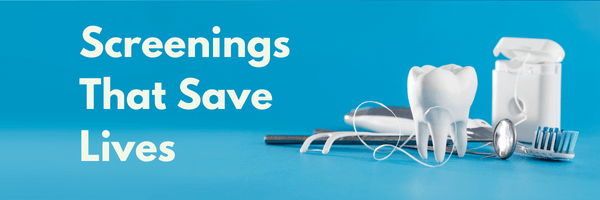.png)
Would Your Smile Be Bigger At Another Dental Practice?
Posted August 29, 2022
You’ve applied for new jobs, won an interview for a very attractive position, and received a job offer. Congratulations!
The excitement of getting a great offer often propels us to accept and tell our current employer and co-workers. But you might want to pause that excitement to listen to the other voices in your head.
“Are you sure you want this?” “Should I upset the flow of my current life?”
The million-dollar question that every job seeker wishes they knew the answer to is:
“Is the grass greener on the other side?”
Is potentially burning bridges with your current employer worth taking on your new position? It often doesn’t matter how hard you try to leave amicably.
Breaking the news that you are leaving for a better-paying opportunity may result in your current employer matching your offer to prevent you from leaving. This will leave you in a predicament of going back to weighing the pros and cons of why you decided to leave in the first place.
Other dental hygienists have asked me for advice over the years, and I am letting you in on some of the questions and advice I have given them.
“Should I Tell My Current Employer Before I Accept the New position?”
The answer to this question is “It depends!”
If part of you is hoping you will get a counteroffer from your current employer, that conversation is the first you need to put into motion. In an earlier DentalPost blog, What To Do When Your Dental Team Member Quits (dentalpost.net), Kyle Zak discusses the possibility that your current employer may want to keep you and come up with reasons to stay. Your employer might even collaborate with you on redefining your role and compensation. This is happening more often now that there is a labor shortage…but you can’t always count on that. Be sure you are willing and able to take the new job before testing the water.
If you have received a formal offer and are sure you want to accept it “no matter what,” you can accept the offer and then tell your current employer. Signs that you have mentally “checked out and moved on” include revealing to a friend at work that you have “something in the works,” feeling your present is pale against your vision of a bright future, and sensing that you are already treating patients and other team members differently.
If you only have an informal offer, for example, the person who interviewed you tells you about an offer over the phone, take a beat. Wait for a formal offer in writing before telling your employer.
The Counteroffer Predicament
A counteroffer may not address all the reasons or the primary reason why you are job seeking in the first place. Before discussing a new job offer with your current employer and potentially being placed in the position of receiving a counteroffer, my advice is to clarify why you applied for that other job in the first place.
If you love your current job and your unhappiness stems from money, the grass could be better where you are. A raise may satisfy your discontent.
If you are unhappy in your current work environment, a raise will not likely be a good long-term solution.
As in my preceding blog, The Pros and Cons of Dental Job Searching – DentalPost, my advice is “Know Yourself!”
My 4 Resignation Announcement Tips
1. Protect yourself so you can collect unemployment if you are dismissed immediately.
- I hear of offices dismissing their employees before the end of their notice period or cutting their days short. Although this is not illegal, it can be frustrating and a financial burden for the employee. In a resignation letter, include the detailed sentence, “I will continue to work my usual 40 hours work week until my end date of _____.” This statement allows you to file for unemployment if your employer dismisses you or changes your hours before this date.
2. Set up your replacement for a smooth transition.
- Offer to stay longer than two weeks to help train the new hire to ensure a smooth transition. Additionally, you may want to create a list of responsibilities and shortcuts that will be helpful for the new hire.
3. Read your contract or employee handbook before letting your patients know where you will work.
- Unfortunately, hygienists have been sued by their previous employers for taking patients with them to their new practice. Many employment contracts include a non-compete clause restricting hygienists from soliciting patients from the employer.
- For example, one American hygienist was sued by her former employer and lost the case. She sent patients a letter stating she was starting a new position at a competitor. Even though it wasn’t malicious and was only trying to inform her patients of her departure, she ultimately violated her contract.
4. Communicate with your office manager or dentist before breaking the news to your patients.
- Get on the same page with the jargon desired by the practice owner to ensure all patients are hearing the same explanation as to why you will no longer be their hygienist or assistant. The clearer the message is, the more seamless the transition will be.
“I Feel Anxiety Over Telling My Employer I Am Leaving.”
One of the negatives of job searching is the guilt we feel as we walk into the dental office and happily talk with our boss and coworkers about weekend plans and building relationships with our patients, all while knowing it may end soon. We may even use a sick day or a “doctor’s appointment” to excuse leaving work early for an interview. Sneaking around awakens uncomfortable feelings of being unreliable and dishonest.
Then, mustering up the courage to tell your boss you are leaving can consume your every thought. While scaling a patient’s teeth, your thoughts may drift over to the dread about breaking the news. How will your supervisor/employer react? Will this end as cordially as you hope with goodwill intact?
Thinking through what you say in person or in a resignation letter prepares you mentally and emotionally. It is helpful to play multiple dialogs in your head, so you are mentally and emotionally prepared for the conversation that will occur, even if you submit a resignation letter.
Once you decide to move on from your current job and tell your employer, the news will spread to the team. At this stage, your excitement about the new job may be overrun by feelings of guilt about leaving your coworkers and patients. Know that this is normal. Keep in mind that career growth is important for most dental professionals to love their work and rise to their highest level.
Just remember that the office manager, dentist, or dental service organization you work for is responsible for filling the void. Embrace your career move and rise.
Use Salary Data to Inform Your Dental Career Moves
Whether you are planning on joining The Great Resignation or are content with your current job, researching job openings and pay rates in your area is integral in ensuring you are being compensated accordingly.
How do you avoid accepting a salary offer below the industry average for your town, city, or state? Consider reviewing and taking part in DentalPost’s annual Salary Survey.
In 2021, DentalPost surveyed over 13,000 dental professionals nationwide about their salary, compensation, bonuses, benefits, and work conditions in their dental teams and offices. You can see the role-specific results in our 2022 Salary Survey Report. Use our data about the typical salaries and benefits other dental professionals enjoy to compare your job opportunities.
Staying up to date with the changes in the dental industry will ensure you are being treated properly and fairly, making you feel fulfilled in your job as a dental professional.
We connect and educate more than 900,000 job seekers in the U.S. and Canada to build better places to work through teams that excel.




.png)



.png)
